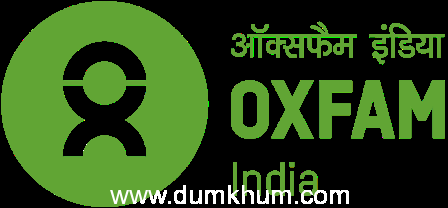Focus on Inequality can raise 90 Million Indians from Poverty by 2019 says OXFAM
Reveals multiple dangers of Extreme Economic Inequality. Offers solutions to end wage and tax discrimination, gender bias, lack of basic health and education services and extreme poverty
New Delhi, Even it Up: Time to End Extreme Inequality, a global report on inequality, was released by Oxfam India in New Delhi today.
Even it Up: Time to End Extreme Inequality, looks beyond the drivers of inequality and recommends effective ways in which governments can tackle inequality, address the gender wage gap, invest in public services and change tax rules to make big business pay their fair share.
Since the global financial crisis the number of billionaires has doubled. A tax, of just 1.5 percent, on their wealth in that period, could have raised enough money to save 23 million lives in the poorest countries.
Oxfam’s latest research has found that if India stopped inequality from rising, they could lift 90 million more people out of extreme poverty by 2019.
“This is an easy win for the government. By levying a wealth tax of only 1.5% on the 65 super rich, 90 million people can lead a life of dignity and free of poverty” said Nisha Agrawal, CEO, Oxfam India.
India specific highlights from report:
- In India, billionaires increased from two in the 1990s to 65 in 2014.
- Net worth of India’s billionaires is enough to eliminate absolute poverty in the country, twice over.
- More than half of the Foreign Direct Investment (FDI) in India is channelled through tax havens.
- The Indian government spends almost twice as much on its military as on health.
- Money that can be invested to tackle inequality is diverted by tax breaks & public-private partnerships.
Kofi Annan, former Secretary General of the United Nations and Nobel Laureate says, “The widening gap between rich and poor is at a tipping point. It can either take deeper root, jeopardising our efforts to reduce poverty, or we can make concrete changes now to reverse it.”
The report, endorsed by Graça Machel, Founder, Graça Machel Trust, Kofi Annan and Nobel Laureate Joseph Stiglitz among others, is the opening salvo of Oxfam’s global campaign, Even it Up, to push world leaders to turn rhetoric into reality and ensure the poorest people get a fairer deal. Urgent action is needed to clamp down on tax evasion by multinational corporations and the world’s richest individuals. Global corporations and the wealthiest people must pay their fair share to governments’, so that countries can tackle inequality and build fairer societies.
About Oxfam India
Oxfam is a world-wide development organization that mobilizes the power of people against poverty. Oxfam India (OIN) works in partnership with 130 NGOs at the grassroots to address core causes of poverty and injustice in seven focus states of Assam, Bihar, Chhattisgarh, Jharkhand, Odisha, Uttar Pradesh and Uttarakhand. In addition, last year OIN made humanitarian interventions during two natural disasters and two conflict zones in India.
Profile:
Oxfam India works towards creating an equal, just and sustainable society by empowering the underprivileged. The overarching vision of Oxfam India is ‘Right to Life with Dignity for All’.
We work in partnership with 130 NGOs at grassroot-level to address core causes of poverty and injustice. Our work focuses on four broad themes.
Economic Justice: Working with farmers to provide them sustainable livelihood.
Support the Forest Rights Act and work with Tribals.
Essential Services – Education and Health: People living in poverty realise their rights to accessible and affordable health and education.
Gender Justice: Women live a violence-free life and gain more power through changes in attitudes, ideas and beliefs.
Humanitarian Response and Disaster Risk Reduction (DRR): Provide humanitarian assistance to people affected, in a manner consistent with their human rights.
Apart from working on these four broad areas, we are also working on some Emerging Themes.
These include the need to build critical work around urban poverty, India’s global image, communalism and peace building, and youth and active citizenship.
Our programmes are currently active in the seven focus states of Assam, Bihar, Chhattisgarh, Jharkhand, Odisha, Uttar Pradesh and Uttarakhand. We work with the most marginalised segments – Dalits, Tribals, Muslims, and Women.
In addition, our humanitarian teams respond to natural disasters, such as floods in Jammu & Kashmir, Uttarakhand, Odisha and Assam, with long term rehabilitation interventions. We also extended humanitarian support to survivors of the communal conflict at Muzaffarnagar.
We are committed to five basic human rights:
Right to sustainable livelihood
Right to social services
Right to life and security
Right to be heard
Right to an identity.










